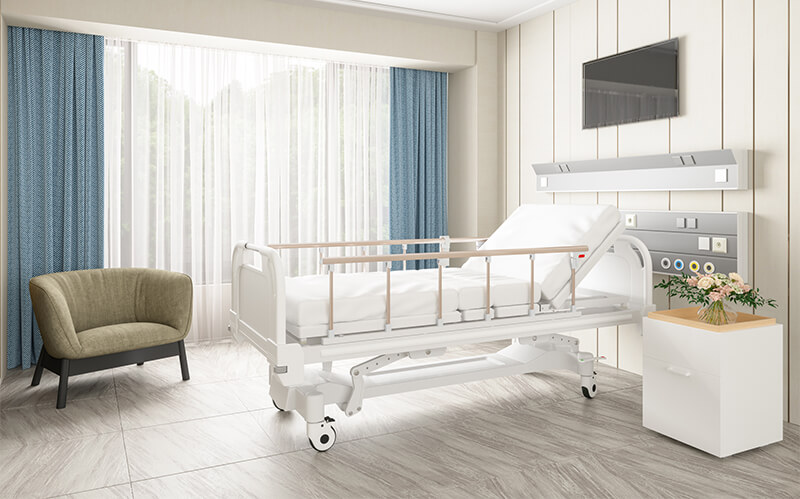
We all experience some sadness and loneliness in our daily lives. It’s a natural part of being an emotional human being. However, when that brief feeling becomes something longer-lasting and more severe, it could signify you’re developing clinical depression. You’re not alone here. As many as 20% of the United States population lives with depression; those are only diagnosed cases.

Right now, there are more than 17.5 million American adults that are struggling with depression or other mental health disorders. Of those, more than 4 million are also struggling with drug or alcohol addiction. Unfortunately, only 40% of them ever receive the treatment for depression they need for their co-occurring diagnosis. Upon entering rehab, most patients get their first opportunity for self-analysis and realization.
As part of the counseling portion of Addiction Treatment, patients and their counselors will go on a journey of self-discovery. The objective of this journey is to determine the specific causes of the patient’s addiction.
When a counselor or clinician identifies depression as a potential contributor to the patient’s addiction, the treatment process shifts. The term the industry uses for this shift is Dual Diagnosis Treatment. A Dual Diagnosis Treatment option will attempt to integrate a depression treatment program with Addiction Treatment. It’s the job of the depression treatment center to determine the extent and direction the depression influences the patient’s addictive behavior. Proper dual diagnosis treatment can help guide patients to recovery from both addiction and depression.

Depression treatment options come in various shapes and sizes and can be customized depending on the individual’s needs. At our depression treatment clinic in Illinois, we offer multiple ways to treat depression, including:
Psychotherapy is usually called “talk therapy.” A psychotherapist trained to help people recover from mental illnesses will talk to a patient in a therapy room. Psychotherapy is an effective treatment for certain types of depression because it helps root out the main reasons for your depression and teach you coping skills.
Most of the psychotherapy methods described below work for both eating disorders and addiction. However, they’re usually combined with other treatment methods such as antidepressant medication and family therapy to get optimal results and produce a lasting effect.
The types of psychotherapy treatment we offer include:
These are short therapy sessions. The focus of this treatment is to help patients develop better relationship skills, such as conflict resolution and communication skills.
The goal is to help people discover and change ways of thinking and behavioral habits that can strengthen feelings of depression. It focuses on dealing with present problems and teaching new skills.
This teaches patients to build healthy relationships both within and outside the family unit. It helps patients learn how to communicate effectively and create a vibrant social network with other people through honesty and respect.
Therapists help patients explore their unhealed and unconscious emotional wounds from their previous life experiences. This is supposed to help people discover how their depression relates to earlier experiences and unresolved conflicts. When addressing these issues, the patient finds it easier to overcome depression.
The therapist seeks to reduce symptoms of depression by encouraging the patient to have positive interactions with the environment.
The therapist invites patients to talk about any issues they want to speak about. This form of psychotherapy is relatively informal and unstructured. As the therapist shows empathy, the patient starts to feel better because of the support provided.
The therapist helps the patient define their problems before suggesting multiple solutions. Then, together, they assess the options and pick a solution.

There are different medications for reducing depression symptoms. Medication works best when it’s combined with other types of therapy. Some categories of medication used to treat depression include:

It may be necessary to hospitalize a patient when a patient’s life is in danger or become a danger to others. Such is the case when a patient gets violent or wants to commit suicide.
While in the hospital, the patient may get medication and group, individual, or family therapy. An intensive outpatient program may also be necessary after the patient gets discharged from the hospital.
Lifestyle changes are essential for fully effective depression treatment. They can also help prevent a relapse of depression symptoms. Some positive changes include:
Exercise increases the secretion of endorphins, serotonin and other brain chemicals that make you feel good. This triggers the growth of new brain cells and neural connections such as antidepressants. That’s why regular exercise is as effective as medication when dealing with depression.
Eat well-balanced meals in small portions during the day to maintain a high energy level and avoid mood swings. Avoid sugary foods and go for whole foods that provide a constant supply of energy.
Getting adequate sleep can help you prevent mood swings. If you don’t get enough sleep, your depression symptoms may grow worse. Depriving yourself of sleep can make you more irritable, moody, sad and fatigued. Get at least 8 hours of sleep every night.
Connect to strong social networks, so you can reduce isolation, which can trigger depression. Stay in constant contact with family and friends or join a support group or class.

At our Illinois treatment facility, we offer a Dual Diagnosis Treatment option. We do this because we understand the importance of addressing the whole patient’s well-being. Our depression treatment program will likely make use of treatment modalities like Dialectical Behavior Therapy offers for the best results. At the end of the day, we want to provide our patients with relief from both depression and addiction. Here’s some additional information about our Illinois facility:
If you suspect you might be dealing with co-existing conditions, Dual Diagnosis Treatment is your best option. For more information about our depression treatment program, contact Gateway right away at 877–377–2027. It’s time to consider getting the kind of help that will put you on a path to a permanent recovery.
We use cookies to give you the best experience on our website. If you continue without changing your cookie settings, we assume that you consent to our use of cookies on this device. You can change your cookie settings at any time but if you do, you may lose some functionality on our website. More information can be found in our Privacy Policy.